203 start with B start with B

In Beyond the Public Sphere: Film and the Feminist Imaginary, the renowned philosopher and critical theorist María Pía Lara challenges the notion that the bourgeois public sphere is the most important informal institution between social and political actors and the state.
Drawing on a wide range of films—including The Milk of Sorrow, Ixcanul, Wadja, The Stone of Patience, Marnie, A Streetcar Named Desire, and Talk to Her—Lara dissects cinematic images of women’s struggles and their oppression. She builds on this analysis, developing a concept of the feminist social imaginary as a broader and more complex space that provides a way of thinking through the possibilities for emancipatory social transformation in response to forms of domination perpetuated by patriarchal capitalism.
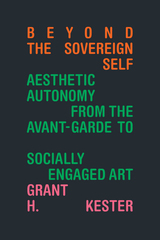
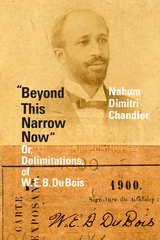
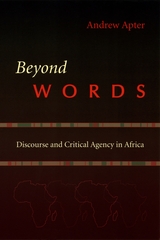
Even within anthropology, a discipline that strives to overcome misrepresentations of peoples and cultures, colonialist depictions of the so-called Dark Continent run deep. The grand narratives, tribal tropes, distorted images, and “natural” histories that forged the foundations of discourse about Africa remain firmly entrenched. In Beyond Words, Andrew Apter explores how anthropology can come to terms with the “colonial library” and begin to develop an ethnographic practice that transcends the politics of Africa’s imperial past.
The way out of the colonial library, Apter argues, is by listening to critical discourses in Africa that reframe the social and political contexts in which they are embedded. Apter develops a model of critical agency, focusing on a variety of language genres in Africa situated in rituals that transform sociopolitical relations by self-consciously deploying the power of language itself. To break the cycle of Western illusions in discursive constructions of Africa, he shows, we must listen to African voices in ways that are culturally and locally informed. In doing so, Apter brings forth what promises to be a powerful and influential theory in contemporary anthropology.
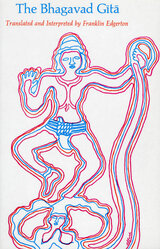
To most good Vishnuites, and to most Hindus, the Bhagavad Gītā is what the New Testament is to good Christians. It is their chief devotional book, and has been for centuries the principal source of religious inspiration for many millions of Indians.
In this two-volume edition, Volume I contains on facing pages a transliteration of original Sanskrit and the Franklin Edgerton’s close translation. Volume II is Mr. Edgerton’s interpretation in which he makes clear the historical setting of the poem and analyzes its influence on later literature and its place in Indian philosophy.
Sir Edwin Arnold’s beautiful translation, “The Song Celestial,” is also included in the second volume.

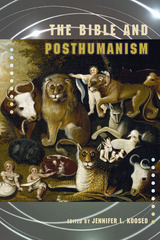
What does it mean, and what should it mean to be human?
In this collection of essays, scholars place the philosophies and theories of animal studies and posthumanism into conversation with biblical studies. Authors cross and disrupt boundaries and categories through close readings of stories where the human body is invaded, possessed, or driven mad. Articles explore the ethics of the human use of animals and the biblical contributions to the question. Other essays use the image of lions—animals that appear not only in the wild, but also in the Bible, ancient Near Eastern texts, and philosophy—to illustrate the potential these theories present for students of the Bible. Contributors George Aichele, Denise Kimber Buell, Benjamin H. Dunning, Heidi Epstein, Rhiannon Graybill, Jennifer L. Koosed, Eric Daryl Meyer, Stephen D. Moore, Hugh Pyper, Robert Paul Seesengood, Yvonne Sherwood, Ken Stone, and Hannah M. Strømmen present an open invitation for further work in the field of posthumanism.
Features:
- Coverage of texts that explore the boundaries between animal, human, and divinity
- Discussion of the term posthumanism and how it applies to biblical studies
- Essays engage Derrida, Foucault, Wolfe, Lacan, Žižek, Singer, Haraway, and others
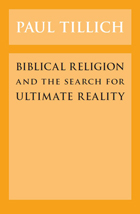
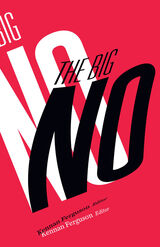
What it means to celebrate the potential and the power of no
What does it mean to refuse? To not participate, to not build a better world, to not come up with a plan? To just say “no”? Against the ubiquitous demands for positive solutions, action-oriented policies, and optimistic compromises, The Big No refuses to play. Here leading scholars traverse the wide range of political action when “no” is in the picture, analyzing topics such as collective action, antisocialism, empirical science, the negative and the affirmative in Deleuze and Derrida, the “real” and the “clone,” Native sovereignty, and Afropessimism.
In his introduction, Kennan Ferguson sums up the concept of the “Big No,” arguing for its political importance. Whatever its form—he identifies various strains—the Big No offers power against systems of oppression. Joshua Clover argues for the importance of Marx and Fanon in understanding how people are alienated and subjugated. Theodore Martin explores the attractions of antisociality in literature and life, citing such novelists as Patricia Highsmith and Richard Wright. François Laruelle differentiates nonphilosophy from other forms of French critical theory. Katerina Kolozova applies this insight to the nature of reality itself, arguing that the confusion of thought and reality leads to manipulation, automation, and alienation. Using poetry and autobiography, Frank Wilderson shows how Black people—their bodies and being—are displaced in politics, replaced and erased by the subjectivities of violence, suffering, and absence. Andrew Culp connects these themes of negativity, comparing and contrasting the refusals of antiphilosophy and Afropessimism.
Thinking critically usually demands alternatives: how would you fix things? But, as The Big No shows, being absolutely critical—declining the demands of world-building—is one necessary response to wrong, to evil. It serves as a powerful reminder that the presumption of political action is always positive.
Contributors: Joshua Clover, U of California Davis and U of Copenhagen; Andrew Culp, California Institute of the Arts; Katerina Kolozova, Institute of Social Sciences and Humanities Skopje; Theodore Martin, U of California, Irvine; Anthony Paul Smith, La Salle U; Frank B. Wilderson III, U of California, Irvine.
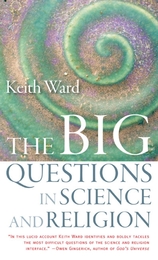
In The Big Questions in Science and Religion, Keith Ward, an Anglican priest who was once an atheist, offers compelling insights into the often contentious relationship between diverse religious views and new scientific knowledge. He identifies ten basic questions about the nature of the universe and human life. Among these are:
•Does the universe have a goal or purpose?•Do the laws of nature exclude miracles?
•Can science provide a wholly naturalistic explanation for moral and religious beliefs?
•Has science made belief in God obsolete? Are there any good science-based arguments for God?
With his expertise in the study of world religions, Ward considers concepts from Buddhism, Confucianism, Taoism, Islam, Hinduism, Judaism, and Christianity, while featuring the speculations of cosmologists, physicians, mathematicians, and philosophers. In addition, Ward examines the implications of ancient laws and modern theories and evaluates the role of religious experience as evidence of a nonphysical reality.
Writing with enthusiasm, passion, and clarity, Keith Ward conveys the depth, difficulty, intellectual excitement, and importance of the greatest intellectual and existential questions of the modern scientific age.

Many complex systems—from immensely complicated ecosystems to minute assemblages of molecules—surprise us with their simple behavior. Consider, for instance, the snowflake, in which a great number of water molecules arrange themselves in patterns with six-way symmetry. How is it that molecules moving seemingly at random become organized according to the simple, six-fold rule? How do the comings, goings, meetings, and eatings of individual animals add up to the simple dynamics of ecosystem populations? More generally, how does complex and seemingly capricious microbehavior generate stable, predictable macrobehavior?
In this book, Michael Strevens aims to explain how simplicity can coexist with, indeed be caused by, the tangled interconnections between a complex system’s many parts. At the center of Strevens’s explanation is the notion of probability and, more particularly, probabilistic independence. By examining the foundations of statistical reasoning about complex systems such as gases, ecosystems, and certain social systems, Strevens provides an understanding of how simplicity emerges from complexity. Along the way, he draws lessons concerning the low-level explanation of high-level phenomena and the basis for introducing probabilistic concepts into physical theory.

Hobbes's Leviathan, Hegel's Phenomenology of Spirit, and Heidegger's Being and Time dramatize conscience's relation to language and knowledge, morality and duty, and ontology. Feldman investigates how, within these works, conscience is described as binding upon us while at the same time asking how texts themselves may be read as binding.
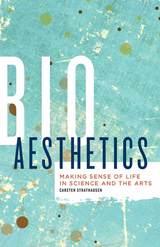
In recent years, bioaesthetics has used the latest discoveries in evolutionary studies and neuroscience to provide new ways of looking at art and aesthetics. Carsten Strathausen’s remarkable exploration of this emerging field is the first comprehensive account of its ideas, as well as a timely critique of its limitations.
Strathausen familiarizes readers with the basics of bioaesthetics, grounding them in its philosophical underpinnings while articulating its key components. Importantly, he delves into the longstanding problem of the “two cultures” that separate the arts and the sciences. Seeking to make bioaesthetics a more robust way of thinking, Strathausen then critiques it for failing to account for science’s historical and cultural assumptions. At its worst, he says, biologism reduces artworks to mere automatons that rubber-stamp pre-established scientific truths.
Written with a sensitive understanding of science’s strengths, and willing to refute its best arguments, Bioaesthetics helps readers separate the sensible from the specious. At a time when humanities departments are shrinking—and when STEM education is on the rise—Bioaesthetics makes vital points about the limitations of science, while lodging a robust defense of the importance of the humanities.

A long-ignored prehistoric mound building people
By the 14th century more than a dozen accretional burial mounds—reaching heights of 12 to 15 feet—marked the floodplains of interior Virginia. Today, none of these mounds built by the nearly forgotten Monacan Indians remain on the landscape, having been removed over the centuries by a variety of natural and cultural causes. This study uses what remains of the mounds—excavated from the 1890s to the 1980s— to gain a new understanding of the Monacans and to gauge their importance in the realm of the late prehistoric period in the Eastern Woodlands.
Based on osteological examinations of dozens of complete skeletons and thousands of isolated bones and bone fragments, this work constructs information on Monacan demography, diet, health, and mortuary ritual in the 10th through the 15th centuries. The results show an overall pattern of stability and local autonomy among the Late Woodland village societies of interior Virginia in which a mixture of maize farming and the collection of wild food resources were successful for more than 600 years.
This book—uniting biological and cultural aspects of the data for a holistic understanding of everyday life in the period—will be of interest to ethnohistorians, osteologists, bioarchaeologists, and anyone studying Late Woodland, Mississippian, and contact periods, as well as middle range societies, in the Eastern Woodlands.
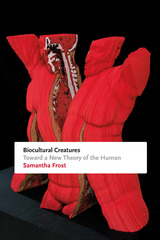

Bioethics and the Human Goods offers students and general readers a brief introduction to bioethics from a “natural law” philosophical perspective. This perspective, which traces its origins to classical antiquity, has profoundly shaped Western ethics and law and is enjoying an exciting renaissance. While compatible with much in the ethical thought of the great religions, it is grounded in reason, not religion. In contrast to the currently dominant bioethical theories of utilitarianism and principlism, the natural law approach offers an understanding of human flourishing grounded in basic human goods, including life, health, friendship, and knowledge, and in the wrongness of intentionally turning against, or neglecting, these goods.
The book is divided into two sections: Foundations and Issues. Foundations sketches a natural law understanding of the important ethical principles of autonomy, non-maleficence, beneficence, and justice and explores different understandings of “personhood” and whether human embryos are persons. Issues applies a natural law perspective to some of the most controversial debates in contemporary bioethics at the beginning and end of life: research on human embryos, abortion, infanticide, euthanasia, the withdrawal of tube-feeding from patients in a “persistent vegetative state,” and the definition of death. The text is completed by appendices featuring personal statements by Alfonso Gómez-Lobo on the status of the human embryo and on the definition and determination of death.
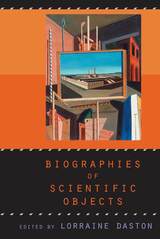
Addressing such questions, Biographies of Scientific Objects is about how whole domains of phenomena—dreams, atoms, monsters, culture, society, mortality, centers of gravity, value, cytoplasmic particles, the self, tuberculosis—come into being and sometimes pass away as objects of scientific study. With examples drawn from both the natural and social sciences, and ranging from the sixteenth to the twentieth centuries, this book explores the ways in which scientific objects are both real and historical. Whether discovered or invented, these objects of inquiry broaden and deepen in meaning—growing more "real"—as they become entangled in webs of cultural significance, material practices, and theoretical derivations. Thus their biographies will matter to anyone concerned with the formation of scientific knowledge.
Contributors are Jed Z. Buchwald, Lorraine Daston, Rivka Feldhay, Jan Goldstein, Gerard Jorland, Doris Kauffman, Bruno Latour, Theodore M. Porter, Hans-Jörg Rheinberger, Marshall Sahlins, and Peter Wagner.
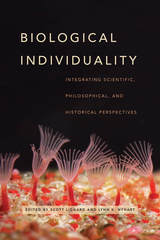
Bringing together biologists, historians, and philosophers, this book provides a multifaceted exploration of biological individuality that identifies leading and less familiar perceptions of individuality both past and present, what they are good for, and in what contexts. Biological practice and theory recognize individuals at myriad levels of organization, from genes to organisms to symbiotic systems. We depend on these notions of individuality to address theoretical questions about multilevel natural selection and Darwinian fitness; to illuminate empirical questions about development, function, and ecology; to ground philosophical questions about the nature of organisms and causation; and to probe historical and cultural circumstances that resonate with parallel questions about the nature of society. Charting an interdisciplinary research agenda that broadens the frameworks in which biological individuality is discussed, this book makes clear that in the realm of the individual, there is not and should not be a direct path from biological paradigms based on model organisms through to philosophical generalization and historical reification.
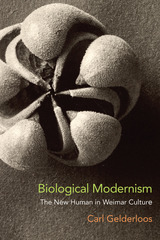
Honorable Mention for the DAAD/GSA Book Prize for the Best Book in Germanistik or Cultural Studies
Biological Modernism identifies an intellectual current in the Weimar Republic that drew on biology, organicism, vitalism, and other discourses associated with living nature in order to redefine the human being for a modern, technological age. Contrary to the assumption that any turn toward the organic indicated a reactionary flight from modernity or a longing for wholeness, Carl Gelderloos shows that biology and other discourses of living nature offered a nuanced way of theorizing modernity rather than fleeing from it. Organic life, instead of representing a stabilizing sense of wholeness, by the 1920s had become a scientific, philosophical, and disciplinary problem. In their work, figures such as Alfred Döblin, Ernst Jünger, Helmuth Plessner, and August Sander interrogated the relationships between technology, nature, and the human and radically reconsidered the relationship between the disciplines as well as the epistemological and political consequences for defining the human being. Biological Modernism will be of interest to scholars of German literature and culture, literary modernism, photography, philosophical anthropology, twentieth-century intellectual history, the politics of culture, and the history of science.
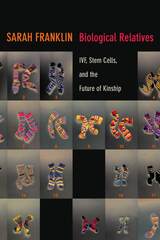

Over the course of human history, the sciences, and biology in particular, have often been manipulated to cause immense human suffering. For example, biology has been used to justify eugenic programs, forced sterilization, human experimentation, and death camps—all in an attempt to support notions of racial superiority. By investigating the past, the contributors to Biology and Ideology from Descartes to Dawkins hope to better prepare us to discern ideological abuse of science when it occurs in the future.
Denis R. Alexander and Ronald L. Numbers bring together fourteen experts to examine the varied ways science has been used and abused for nonscientific purposes from the fifteenth century to the present day. Featuring an essay on eugenics from Edward J. Larson and an examination of the progress of evolution by Michael J. Ruse, Biology and Ideology examines uses both benign and sinister, ultimately reminding us that ideological extrapolation continues today. An accessible survey, this collection will enlighten historians of science, their students, practicing scientists, and anyone interested in the relationship between science and culture.
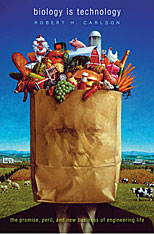
Technology is a process and a body of knowledge as much as a collection of artifacts. Biology is no different—and we are just beginning to comprehend the challenges inherent in the next stage of biology as a human technology. It is this critical moment, with its wide-ranging implications, that Robert Carlson considers in Biology Is Technology. He offers a uniquely informed perspective on the endeavors that contribute to current progress in this area—the science of biological systems and the technology used to manipulate them.
In a number of case studies, Carlson demonstrates that the development of new mathematical, computational, and laboratory tools will facilitate the engineering of biological artifacts—up to and including organisms and ecosystems. Exploring how this will happen, with reference to past technological advances, he explains how objects are constructed virtually, tested using sophisticated mathematical models, and finally constructed in the real world.
Such rapid increases in the power, availability, and application of biotechnology raise obvious questions about who gets to use it, and to what end. Carlson’s thoughtful analysis offers rare insight into our choices about how to develop biological technologies and how these choices will determine the pace and effectiveness of innovation as a public good.
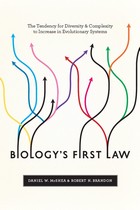
Life on earth is characterized by three striking phenomena that demand explanation: adaptation—the marvelous fit between organism and environment; diversity—the great variety of organisms; and complexity—the enormous intricacy of their internal structure. Natural selection explains adaptation. But what explains diversity and complexity? Daniel W. McShea and Robert N. Brandon argue that there exists in evolution a spontaneous tendency toward increased diversity and complexity, one that acts whether natural selection is present or not. They call this tendency a biological law—the Zero-Force Evolutionary Law, or ZFEL. This law unifies the principles and data of biology under a single framework and invites a reconceptualization of the field of the same sort that Newton’s First Law brought to physics.
Biology’s First Law shows how the ZFEL can be applied to the study of diversity and complexity and examines its wider implications for biology. Intended for evolutionary biologists, paleontologists, and other scientists studying complex systems, and written in a concise and engaging format that speaks to students and interdisciplinary practitioners alike, this book will also find an appreciative audience in the philosophy of science.
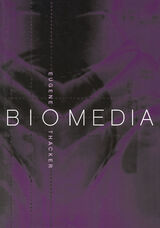
The merging of computer science and molecular biology, genetic codes and computer codes
As biotechnology defines the new millennium, genetic codes and computer codes increasingly merge—life understood as data, flesh rendered programmable. Where this trend will take us, and what it might mean, is what concerns Eugene Thacker in this timely book, a penetrating look into the intersection of molecular biology and computer science in our day and its likely ramifications for the future.
Integrating approaches from science and media studies, Biomedia is a critical analysis of research fields that explore relationships between biologies and technologies, between genetic and computer “codes.” In doing so, the book looks beyond the familiar examples of cloning, genetic engineering, and gene therapy—fields based on the centrality of DNA or genes—to emerging fields in which “life” is often understood as “information.” Focusing especially on interactions between genetic and computer codes, or between “life” and “information,” Thacker shows how each kind of “body” produced—from biochip to DNA computer—demonstrates how molecular biology and computer science are interwoven to provide unique means of understanding and controlling living matter.Throughout, Thacker provides in-depth accounts of theoretical issues implicit in biotechnical artifacts—issues that arise in the fields of bioinformatics, proteomics, systems biology, and biocomputing. Research in biotechnology, Biomedia suggests, flouts our assumptions about the division between biological and technological systems. New ways of thinking about this division are needed if we are to understand the cultural, social, and philosophical dimensions of such research, and this book marks a significant advance in the coming intellectual revolution.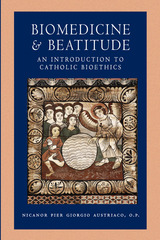
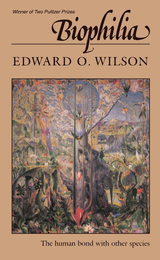
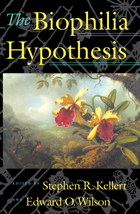
"Biophilia" is the term coined by Edward O. Wilson to describe what he believes is humanity's innate affinity for the natural world. In his landmark book Biophilia, he examined how our tendency to focus on life and lifelike processes might be a biologically based need, integral to our development as individuals and as a species. That idea has caught the imagination of diverse thinkers.
The Biophilia Hypothesis brings together the views of some of the most creative scientists of our time, each attempting to amplify and refine the concept of biophilia. The variety of perspectives -- psychological, biological, cultural, symbolic, and aesthetic -- frame the theoretical issues by presenting empirical evidence that supports or refutes the hypothesis. Numerous examples illustrate the idea that biophilia and its converse, biophobia, have a genetic component:
- fear, and even full-blown phobias of snakes and spiders are quick to develop with very little negative reinforcement, while more threatening modern artifacts -- knives, guns, automobiles -- rarely elicit such a response
- people find trees that are climbable and have a broad, umbrella-like canopy more attractive than trees without these characteristics
- people would rather look at water, green vegetation, or flowers than built structures of glass and concrete
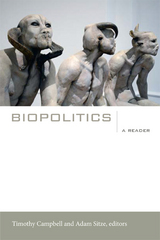
Michel Foucault gave new and unprecedented meaning to the term "biopolitics" in his 1976 essay "Right of Death and Power over Life." In this anthology, that touchstone piece is followed by essays in which biopolitics is implicitly anticipated as a problem by Hannah Arendt and later altered, critiqued, deconstructed, and refined by major political and social theorists who explicitly engaged with Foucault's ideas. By focusing on the concept of biopolitics, rather than applying it to specific events and phenomena, this Reader provides an enduring framework for assessing the central problematics of modern political thought.
Contributors. Giorgio Agamben, Hannah Arendt, Alain Badiou, Timothy Campbell, Gilles Deleuze, Roberto Esposito, Michel Foucault, Donna Haraway, Michael Hardt, Achille Mbembe, Warren Montag, Antonio Negri, Jacques Rancière, Adam Sitze, Peter Sloterdijk, Paolo Virno, Slavoj Žižek
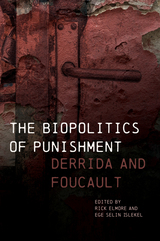
With the resurgence of fascism and authoritarianism across the globe, the rise of white supremacist and xenophobic violence, and the continued brutality of state-sanctioned and extrajudicial killings by police, border patrols, and ordinary citizens, there is a pressing need to critically analyze our political present. These essays bring to bear the critical force of Derrida’s and Foucault’s biopolitical thought to practices of mass incarceration, the death penalty, life without parole, immigration and detention, racism and police violence, transphobia, human and animal relations, and the legacies of colonization. At the heart of their biopolitics, the volume shows, lies the desire to deconstruct and resist in the name of a future that is more just and less policed. It is this impulse that makes reading their work together, at this moment, both crucial and worthwhile.
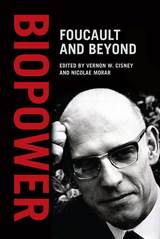
Situating biopower as a radical alternative to traditional conceptions of power—what Foucault called “sovereign power”—the contributors examine a host of matters centered on life, the body, and the subject as a living citizen. Altogether, they pay testament to the lasting relevance of biopower in some of our most important contemporary debates on issues ranging from health care rights to immigration laws, HIV prevention discourse, genomics medicine, and many other topics.


Birds were never far from Thoreau’s mind. They wing their way through his writing just as they did through his cabin on Walden Pond, summoned or dismissed at whim by his whistles. Emblematic of life, death, and nature’s endless capacity for renewal, birds offer passage into the loftiest currents of Thoreau’s thought. What Branka Arsić finds there is a theory of vitalism that Thoreau developed in response to his brother’s death. Through grieving, Thoreau came to see life as a generative force into which everything dissolves. Death is not an annulment of life but the means of its transformation and reemergence.
Bird Relics traces Thoreau’s evolving thoughts through his investigation of Greek philosophy and the influence of a group of Harvard vitalists who resisted the ideas of the naturalist Louis Agassiz. It takes into account materials often overlooked by critics: his Indian Notebooks and unpublished bird notebooks; his calendars that rewrite how we tell time; his charts of falling leaves, through which he develops a complex theory of decay; and his obsession with vegetal pathology, which inspires a novel understanding of the relationship between disease and health.
Arsić’s radical reinterpretation of Thoreau’s life philosophy gives new meaning to some of his more idiosyncratic habits, such as writing obituaries for people he did not know and frequenting estate sales, and raises important questions about the ethics of Thoreau’s practice of appropriating the losses of others as if they were his own.
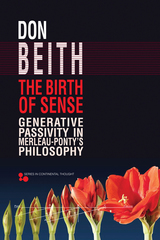
In The Birth of Sense, Don Beith proposes a new concept of generative passivity, the idea that our organic, psychological, and social activities take time to develop into sense. More than being a limit, passivity marks out the way in which organisms, persons, and interbodily systems take time in order to manifest a coherent sense. Beith situates his argument within contemporary debates about evolution, developmental biology, scientific causal explanations, psychology, postmodernism, social constructivism, and critical race theory. Drawing on empirical studies and phenomenological reflections, Beith argues that in nature, novel meaning emerges prior to any type of constituting activity or deterministic plan.
The Birth of Sense is an original phenomenological investigation in the style of Maurice Merleau-Ponty, and it demonstrates that the French philosopher’s works cohere around the notion that life is radically expressive. While Merleau-Ponty’s early works are widely interpreted as arguing for the primacy of human consciousness, Beith argues that a pivotal redefinition of passivity is already under way here, and extends throughout Merleau-Ponty’s corpus. This work introduces new concepts in contemporary philosophy to interrogate how organic development involves spontaneous expression, how personhood emerges from this bodily growth, and how our interpersonal human life remains rooted in, and often thwarted by, domains of bodily expressivity.
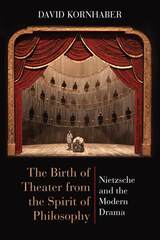
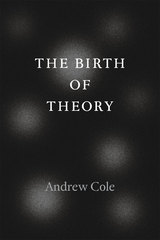
By uncovering these theoretical filiations across time, The Birth of Theory will not only change the way we read Hegel, but also the way we think about the histories of theory. With chapters that powerfully reanimate the overly familiar topics of ideology, commodity fetishism, and political economy, along with a groundbreaking reinterpretation of Hegel’s famous master/slave dialectic, The Birth of Theory places the disciplines of philosophy, literature, and history in conversation with one another in an unprecedented way. Daring to reconcile the sworn enemies of Hegelianism and Deleuzianism, this timely book will revitalize dialectics for the twenty-first century.

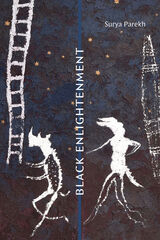
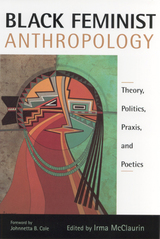
In this volume, Irma McClaurin has collected-for the first time-essays that explore the role and contributions of black feminist anthropologists. She has asked her contributors to disclose how their experiences as black women have influenced their anthropological practice in Africa, the Caribbean, and the United States, and how anthropology has influenced their development as black feminists. Every chapter is a unique journey that enables the reader to see how scholars are made. The writers present material from their own fieldwork to demonstrate how these experiences were shaped by their identities. Finally, each essay suggests how the author's field experiences have influenced the theoretical and methodological choices she has made throughout her career.
Not since Diane Wolf's Feminist Dilemmas in the Field or Hortense Powdermaker's Stranger and Friend have we had such a breadth of women anthropologists discussing the critical (and personal) issues that emerge when doing ethnographic research.
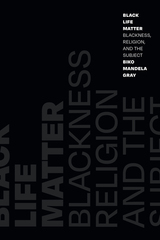
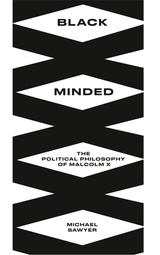
Michael Sawyer argues that the foundational concepts of Malcolm X's political philosophy - economic and social justice, strident opposition to white supremacy and Black internationalism - are often obscured by an emphasis on biography. The text demonstrates the way in which Malcolm X's philosophy lies at the intersection of the thought of W.E.B. Du Bois and Frantz Fanon and is an integral part of the revolutionary politics formed to alleviate the plight of people of African descent globally.
Exploring themes of ontology, the body, geographic space and revolution, Black Minded provides a much-needed appraisal of Malcolm X's political philosophy.

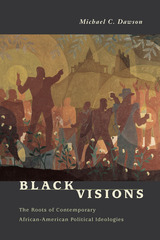

Caws takes us back to Pascal’s youth, when he was a child prodigy first engaging mathematics through the works of mathematicians such as Father Mersenne. She describes his early scientific experiments and his construction of mechanical calculating machines; she looks at his correspondence with important thinkers such as René Descartes and Pierre de Fermat; she surveys his many inventions, such as the first means of public transportation in Paris; and she considers his later religious exaltations in works such as the “Memorial.” Along the way, Caws examines Pascal’s various modes of writing—whether he is arguing with the strict puritanical modes of church politics, assuming the personality of a naïve provincial trying to understand the Jesuitical approach, offering pithy aphorisms in the Pensées, or meditating on thinking about thinking itself.
Altogether, this book lays side by side many aspects of Pascal’s life and work that are seldom found in a single volume: his religious motivations and faith, his scientific passions, and his practical savvy. The result is a comprehensive but easily approachable account of a fascinating and influential figure.
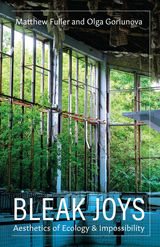
A philosophical and cultural distillation of the bleak joys in today’s ambivalent ecologies and patterns of life
Bleak Joys develops an understanding of complex entities and processes—from plant roots to forests to ecological damage and its calculation—as aesthetic. It is also a book about “bad” things, such as anguish and devastation, which relate to the ecological and technical but are also constitutive of politics, the ethical, and the formation of subjects.
Avidly interdisciplinary, Bleak Joys draws on scientific work in plant sciences, computing, and cybernetics, as well as mathematics, literature, and art in ways that are not merely illustrative of but foundational to our understanding of ecological aesthetics and the condition in which the posthumanities are being forged. It places the sensory world of plants next to the generalized and nonlinear infrastructure of irresolvability—the economics of indifference up against the question of how to make a home on Planet Earth in a condition of damaged ecologies. Crosscutting chapters on devastation, anguish, irresolvability, luck, plant, and home create a vivid and multifaceted approach that is as remarkable for its humor as for its scholarly complexity.
Engaging with Deleuze, Guattari, and Bakhtin, among others, Bleak Joys captures the modes of crises that constitute our present ecological and political condition, and reckons with the means by which they are not simply aesthetically known but aesthetically manifest.

Amanda Anderson examines canonical works of high realism, political novels from England and the United States, and modernist works to argue that liberalism has engaged sober and even stark views of historical development, political dynamics, and human and social psychology. From Charles Dickens’s Bleak House and Hard Times to E. M. Forster’s Howards End to Doris Lessing’s The Golden Notebook, this literature demonstrates that liberalism has inventive ways of balancing sociological critique and moral aspiration. A deft blend of intellectual history and literary analysis, Bleak Liberalism reveals a richer understanding of one of the most important political ideologies of the modern era.

Bringing sex and philosophy together on a blind date, Anne Dufourmantelle’s provocative study uses this analogy to uncover and examine philosophy’s blind spot. Delightful and startling comparisons spring from the date: both sex and philosophy are dangerous, both are socially subversive, and both are obsessions. Although sex and philosophy have much in common, however, they have scarcely known one another until now.
Socrates and Diogenes had little to say about sex, and although it was notoriously explored by the Marquis de Sade, this study explains why philosophy has never been fully sexualized nor sex really philosophized. Blind Date highlights the marked deletion of sexual topics and themes from philosophical works, while also opening doors for their union. Inviting readers to remember that thought does not require repressed desire, Dufourmantelle argues that sex is everywhere, and it affects all kinds of thinking.
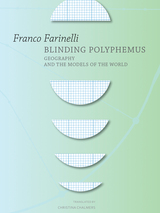
Following the lessons of nineteenth-century critical German geography, this is a manual of geography without any map. To indicate where things are means already responding, in implicit and unreflective ways, to prior questions about their nature. Blinding Polyphemus not only takes account of the present state of the Earth and of human geography, it redefines the principal models we possess for the description of the world: the map, above all, as well as the landscape, subject, place, city, and space.
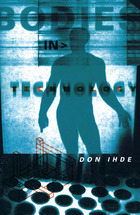
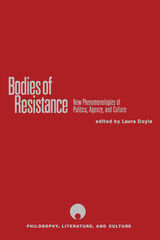
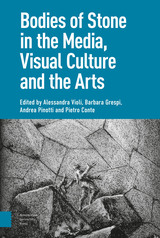
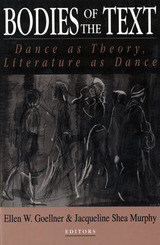
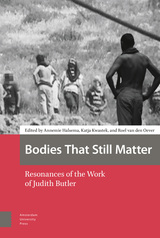
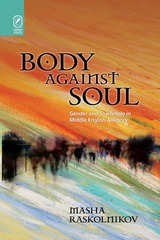
The topic of this book is one that runs through all of Western history and remains of primary interest to modern theorists—how “my” body relates to “me.” In the allegorical tradition traced by this study, a male person could imagine himself as a being populated by female personifications, because Latin and Romance languages tended to gender abstract nouns as female. However, since Middle English had ceased to inflect abstract nouns as male or female, writers were free to gender abstractions like “Will” or “Reason” any way they liked. This permitted some psychological allegories to avoid the representational tension caused by placing a female soul inside a male body, instead creating surprisingly queer same-sex inner worlds. The didactic intent driving sowlehele is, it turns out, complicated by the erotics of the struggle to establish a hierarchy of the self’s inner powers.
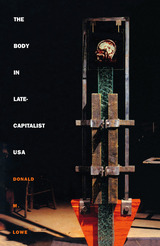
Moving beyond studies of representations and images of the body, Lowe focuses on the intersection of body practices, language, and the Social to describe concretely the reality of a lived body. His strongly synthetic work brings together Marxist critique, semiotics, Foucaultian discourse analysis, and systems and communications theory to examine those practices that construct the body under late capitalism: habits of work and consumption, the ways we give birth and raise children, socialization, mental and physical healing, reconstructions and contestations of sexuality and gender. Lowe draws upon a wide range of sources, including government and labor studies and statistics, diagnostic and statistical manuals on mental illness, computer manuals, self-help books, and guides to work-related stress disorders, to illustrate the transformation of the body into a nexus of exchange value in postmodern society.
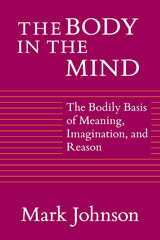

The Body Multiple juxtaposes two distinct texts. Alongside Mol’s analysis of her ethnographic material—interviews with doctors and patients and observations of medical examinations, consultations, and operations—runs a parallel text in which she reflects on the relevant literature. Mol draws on medical anthropology, sociology, feminist theory, philosophy, and science and technology studies to reframe such issues as the disease-illness distinction, subject-object relations, boundaries, difference, situatedness, and ontology. In dialogue with one another, Mol’s two texts meditate on the multiplicity of reality-in-practice.
Presenting philosophical reflections on the body and medical practice through vivid storytelling, The Body Multiple will be important to those in medical anthropology, philosophy, and the social study of science, technology, and medicine.
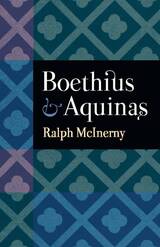
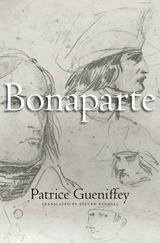
Patrice Gueniffey is the leading French historian of the Revolutionary and Napoleonic age. This book, hailed as a masterwork on its publication in France, takes up the epic narrative at the heart of this turbulent period: the life of Napoleon himself, the man who—in Madame de Staël’s words—made the rest of “the human race anonymous.” Gueniffey follows Bonaparte from his obscure boyhood in Corsica, to his meteoric rise during the Italian and Egyptian campaigns of the Revolutionary wars, to his proclamation as Consul for Life in 1802. Bonaparte is the story of how Napoleon became Napoleon. A future volume will trace his career as emperor.
Most books approach Napoleon from an angle—the Machiavellian politician, the military genius, the life without the times, the times without the life. Gueniffey paints a full, nuanced portrait. We meet both the romantic cadet and the young general burning with ambition—one minute helplessly intoxicated with Josephine, the next minute dominating men twice his age, and always at war with his own family. Gueniffey recreates the violent upheavals and global rivalries that set the stage for Napoleon’s battles and for his crucial role as state builder. His successes ushered in a new age whose legacy is felt around the world today.
Averse as we are now to martial glory, Napoleon might seem to be a hero from a bygone time. But as Gueniffey says, his life still speaks to us, the ultimate incarnation of the distinctively modern dream to will our own destiny.

Marianne Sommer unravels a riveting tale about a set of ancient human bones and their curious afterlife as a scientific object.
When the ochre-stained bones were unearthed in a Welsh cave in 1823, they inspired unsettling questions regarding their origin. Their discoverer, William Buckland, declared the remains to be Post-Diluvian, possibly those of a taxman murdered by smugglers. Shortly thereafter he reinterpreted the bones as those of a female fortune-teller in Roman Britain--and so began the casting and recasting of the Red Lady. Anthropologist William Sollas re-excavated Paviland Cave, applying methods and theories not available to Buckland some ninety years earlier, and concluded that the skeleton was male and Cro-Magnon. Recently, an interdisciplinary team excavated the cave and reinterpreted its contents. Despite their "definitive report" in 2000, Sommer suggests this latest project still hasn't solved the mystery of the Red Lady. Rather, the Red Lady, now a shaman and icon of Welsh ancient history, continues to be implicated in questions of scientific and political authority.
The biography of the Red Lady reflects the personal, professional, and national ambitions of those who studied her and echoes the era in which the research was conducted. In Bones and Ochre, Sommer reveals how paleoanthropology has emerged as an international, interdisciplinary, modern science.
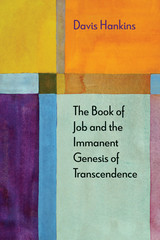
Winner of the 2017 Manfred Lautenschlaeger Award for Theological Promise
Job is often understood to be a trite folktale about human limitation in the face of confounding and absolute transcendence. On the contrary, Hankins demonstrates that Job is a drama about the struggle to create a just and viable life in a material world that is ontologically incomplete and consequently open to radical, unpredictable transformation. Job’s abiding legacy for any future materialist theology becomes clear as Hankins analyzes Job’s dramatizations of a transcendence that is not externally opposed to but that emerges from an ontologically incomplete material world.

What is sleep? How can this most unproductive of human states—metaphorically called death’s shadow or considered the very pinnacle of indolence—be envisioned as action and agency? And what do we become in sleep? What happens to the waking selves we understand ourselves to be?
Written in the spring of 2013, as the Egyptian government of President Mohammed Morsi was unraveling in the face of widespread protests, The Book of Sleep is a landmark in contemporary Arabic literature. Drawing on the devices and forms of poetry, philosophical reflection, political analysis, and storytelling, this genre-defying work presents us with an assemblage of fragments that combine and recombine, circling around their central theme but refusing to fall into its gravity.
“My concern was not to create a literary product in the conventional sense, but to try and use literature as a methodology for thinking,” El Wardany explains. In this volume, sleep shapes sentences and distorts conventions. Its protean instability throws out memoir and memory, dreams and hallucinatory reverie, Sufi fables and capitalist parables, in the quest to shape a question. The Book of Sleep is a generous and generative attempt to reimagine possibility and hope in a world of stifling dualities and constrictions.
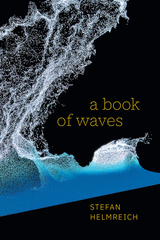
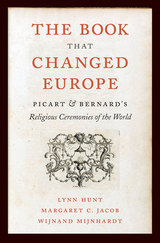
Two French Protestant refugees in eighteenth-century Amsterdam gave the world an extraordinary work that intrigued and outraged readers across Europe. In this captivating account, Lynn Hunt, Margaret Jacob, and Wijnand Mijnhardt take us to the vibrant Dutch Republic and its flourishing book trade to explore the work that sowed the radical idea that religions could be considered on equal terms.
Famed engraver Bernard Picart and author and publisher Jean Frederic Bernard produced The Religious Ceremonies and Customs of All the Peoples of the World, which appeared in the first of seven folio volumes in 1723. They put religion in comparative perspective, offering images and analysis of Jews, Catholics, Muslims, the peoples of the Orient and the Americas, Protestants, deists, freemasons, and assorted sects. Despite condemnation by the Catholic Church, the work was a resounding success. For the next century it was copied or adapted, but without the context of its original radicalism and its debt to clandestine literature, English deists, and the philosophy of Spinoza.
Ceremonies and Customs prepared the ground for religious toleration amid seemingly unending religious conflict, and demonstrated the impact of the global on Western consciousness. In this beautifully illustrated book, Hunt, Jacob, and Mijnhardt cast new light on the profound insight found in one book as it shaped the development of a modern, secular understanding of religion.
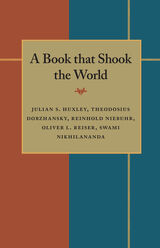

This is the first comprehensive overview of the work of Murray Bookchin, the left-libertarian social theorist and political ecologist who is widely regarded as the visionary precursor of anti-corporate politics.
Bookchin's writing spans fifty years and engages with a wide variety of issues: from ecology to urban planning, from environmental ethics to debates about radical democracy. Weaving insights from Hegel and Marx, Kropotkin and Mumford, Bookchin presents a critical theory whose central utopian message is 'things could be other than they are'.
This accessible introduction maps the evolution of Bookchin’s project. It traces his controversial engagements with Marxism, anarchism, critical theory, postmodernism and eco-centric thought. It evaluates his attempt to develop a social ecology. Finally, it considers how his thinking relates to current debates in social theory and environmentalism, critical theory and philosophy, political ecology and urban theory.
Offering a clear account of Bookchin's key themes, this book provides a critical but sympathetic account of the strengths and weaknesses of Bookchin's writing.

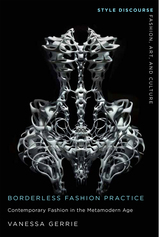
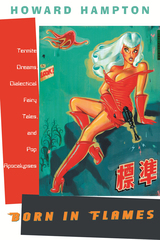
Twenty years as an outsider scouring the underbelly of American culture has made Howard Hampton a uniquely hard-nosed guide to the heart of pop darkness. Bridging the fatalistic, intensely charged space between Apocalypse Now Redux and Nirvana’s “Smells Like Teen Spirit,” his writing breaks down barriers of ignorance and arrogance that have segregated art forms from each other and often from the world at large.
In the freewheeling spirit of Pauline Kael, Lester Bangs, and Manny Farber, Hampton calls up the extremist, underground tendencies and archaic forces simmering beneath the surface of popular forms. Ranging from the kinetic poetry of Hong Kong cinema and the neo–New Wave energy of Irma Vep to the punk heroines of Sleater-Kinney and Ghost World, Born in Flames plays odd couples off one another: pitting Natural Born Killers against Forrest Gump, contrasting Jean-Luc Godard with Steven Spielberg, defending David Lynch against aesthetic ideologues, invoking The Curse of the Mekons against Fredric Jameson’s Postmodernism, and introducing D. H. Lawrence to Buffy the Vampire Slayer. “We are born in flames,” sang the incandescent Lora Logic, and here those flames are a source of illumination as well as destruction, warmth as well as consumption.
From the scorched-earth works of action-movie provocateurs Seijun Suzuki and Sam Peckinpah to the cargo cult soundscapes of Pere Ubu and the Czech dissidents Plastic People of the Universe, Born in Flames is a headlong plunge into the passions and disruptive power of art.
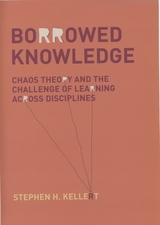
Using the recent explosion in the use (and abuse) of chaos theory, Borrowed Knowledge and the Challenge of Learning across Disciplines examines the relationship between science and other disciplines as well as the place of scientific knowledge within our broader culture. Stephen H. Kellert’s detailed investigation of the myriad uses of chaos theory reveals serious problems that can arise in the interchange between science and other knowledge-making pursuits, as well as opportunities for constructive interchange. By engaging with recent debates about interdisciplinary research, Kellert contributes a theoretical vocabulary and a set of critical frameworks for the rigorous examination of borrowing.
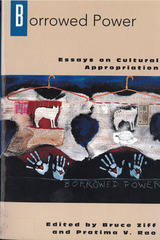

Throughout his life, James Boswell struggled to fashion a clear account of himself, but try as he might, he could not reconcile the truths of his era with those of his religious upbringing. Boswell’s Enlightenment examines the conflicting credos of reason and faith, progress and tradition that pulled Boswell, like so many eighteenth-century Europeans, in opposing directions. In the end, the life of the man best known for writing Samuel Johnson’s biography was something of a patchwork affair. As Johnson himself understood: “That creature was its own tormentor, and I believe its name was BOSWELL.”
Few periods in Boswell’s life better crystallize this internal turmoil than 1763–1765, the years of his Grand Tour and the focus of Robert Zaretsky’s thrilling intellectual adventure. From the moment Boswell sailed for Holland from the port of Harwich, leaving behind on the beach his newly made friend Dr. Johnson, to his return to Dover from Calais a year and a half later, the young Scot was intent on not just touring historic and religious sites but also canvassing the views of the greatest thinkers of the age. In his relentless quizzing of Voltaire and Rousseau, Hume and Johnson, Paoli and Wilkes on topics concerning faith, the soul, and death, he was not merely a celebrity-seeker but—for want of a better term—a truth-seeker. Zaretsky reveals a life more complex and compelling than suggested by the label “Johnson’s biographer,” and one that 250 years later registers our own variations of mind.

In this expanded and revised edition of a fresh and original case-study textbook on environmental ethics, Christine Gudorf and James Huchingson continue to explore the line that separates the current state of the environment from what it should be in the future.
Boundaries begins with a lucid overview of the field, highlighting the key developments and theories in the environmental movement. Specific cases offer a rich and diverse range of situations from around the globe, from saving the forests of Java and the use of pesticides in developing countries to restoring degraded ecosystems in Nebraska. With an emphasis on the concrete circumstances of particular localities, the studies continue to focus on the dilemmas and struggles of individuals and communities who face daunting decisions with serious consequences. This second edition features extensive updates and revisions, along with four new cases: one on water privatization, one on governmental efforts to mitigate global climate change, and two on the obstacles that teachers of environmental ethics encounter in the classroom. Boundaries also includes an appendix for teachers that describes how to use the cases in the classroom.
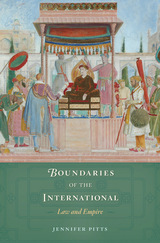
It is commonly believed that international law originated in relations among European states that respected one another as free and equal. In fact, as Jennifer Pitts shows, international law was forged at least as much through Europeans’ domineering relations with non-European states and empires, leaving a legacy still visible in the unequal structures of today’s international order.
Pitts focuses on the eighteenth and nineteenth centuries, the great age of imperial expansion, as European intellectuals and administrators worked to establish and justify laws to govern emerging relationships with non-Europeans. Relying on military and commercial dominance, European powers dictated their own terms on the basis of their own norms and interests. Despite claims that the law of nations was a universal system rooted in the values of equality and reciprocity, the laws that came to govern the world were parochial and deeply entangled in imperialism. Legal authorities, including Emer de Vattel, John Westlake, and Henry Wheaton, were key figures in these developments. But ordinary diplomats, colonial administrators, and journalists played their part too, as did some of the greatest political thinkers of the time, among them Montesquieu and John Stuart Mill.
Against this growing consensus, however, dissident voices as prominent as Edmund Burke insisted that European states had extensive legal obligations abroad that ought not to be ignored. These critics, Pitts shows, provide valuable resources for scrutiny of the political, economic, and legal inequalities that continue to afflict global affairs.
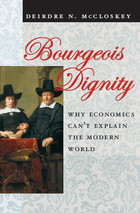
The big economic story of our times is not the Great Recession. It is how China and India began to embrace neoliberal ideas of economics and attributed a sense of dignity and liberty to the bourgeoisie they had denied for so long. The result was an explosion in economic growth and proof that economic change depends less on foreign trade, investment, or material causes, and a whole lot more on ideas and what people believe.
Or so says Deirdre N. McCloskey in Bourgeois Dignity, a fiercely contrarian history that wages a similar argument about economics in the West. Here she turns her attention to seventeenth- and eighteenth-century Europe to reconsider the birth of the industrial revolution and the rise of capitalism. According to McCloskey, our modern world was not the product of new markets and innovations, but rather the result of shifting opinions about them. During this time, talk of private property, commerce, and even the bourgeoisie itself radically altered, becoming far more approving and flying in the face of prejudices several millennia old. The wealth of nations, then, didn’t grow so dramatically because of economic factors: it grew because rhetoric about markets and free enterprise finally became enthusiastic and encouraging of their inherent dignity.
An utterly fascinating sequel to her critically acclaimed book The Bourgeois Virtues, Bourgeois Dignity is a feast of intellectual riches from one of our most spirited and ambitious historians—a work that will forever change our understanding of how the power of persuasion shapes our economic lives.
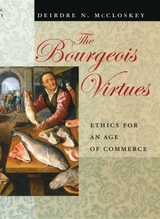
McCloskey’s sweeping, charming, and even humorous survey of ethical thought and economic realities—from Plato to Barbara Ehrenreich—overturns every assumption we have about being bourgeois. Can you be virtuous and bourgeois? Do markets improve ethics? Has capitalism made us better as well as richer? Yes, yes, and yes, argues McCloskey, who takes on centuries of capitalism’s critics with her erudition and sheer scope of knowledge. Applying a new tradition of “virtue ethics” to our lives in modern economies, she affirms American capitalism without ignoring its faults and celebrates the bourgeois lives we actually live, without supposing that they must be lives without ethical foundations.
High Noon, Kant, Bill Murray, the modern novel, van Gogh, and of course economics and the economy all come into play in a book that can only be described as a monumental project and a life’s work. The Bourgeois Virtues is nothing less than a dazzling reinterpretation of Western intellectual history, a dead-serious reply to the critics of capitalism—and a surprising page-turner.
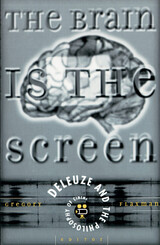
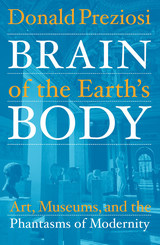
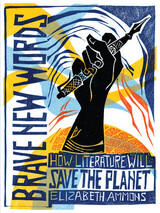
The activist tradition in American literature has long testified to the power of words to change people and the power of people to change the world, yet in recent years many professional humanists have chosen to distract themselves with a postmodern fundamentalism of indeterminacy and instability rather than engage with social and political issues. Throughout her bold and provocative call to action, Elizabeth Ammons argues that the responsibility now facing humanists is urgent: inside and outside academic settings, they need to revive the liberal arts as a progressive cultural force that offers workable ideas and inspiration in the real-world struggle to achieve social and environmental justice.
Brave New Words challenges present and future literary scholars and teachers to look beyond mere literary critique toward the concrete issue of social change and how to achieve it. Calling for a profound realignment of thought and spirit in the service of positive social change, Ammons argues for the continued importance of multiculturalism in the twenty-first century despite attacks on the concept from both right and left. Concentrating on activist U.S. writers—from ecocritics to feminists to those dedicated to exposing race and class biases, from Jim Wallis and Cornel West to Winona LaDuke and Paula Moya and many others—she calls for all humanists to link their work to the progressive literature of the last half century, to insist on activism in the service of positive change as part of their mission, and to teach the power of hope and action to their students.
As Ammons clearly demonstrates, much of American literature was written to expose injustice and motivate readers to work for social transformation. She challenges today’s academic humanists to address the issues of hope and purpose by creating a practical activist pedagogy that gives students the knowledge to connect their theoretical learning to the outside world. By relying on the transformative power of literature and replacing nihilism and powerlessness with conviction and faith, the liberal arts can offer practical, useful inspiration to everyone seeking to create a better world.
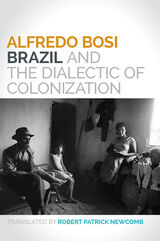
Portugal extracted wealth from its Brazilian colony. Slaves--first indigenous peoples, later Africans--mined its ore and cut its sugarcane. From the customs of the colonists and the aspirations of the enslaved rose Brazil. Bosi scrutinizes signal points in the creation of Brazilian culture--the plays and poetry, the sermons of missionaries and Jesuit priests, the Indian novels of José de Alencar and the Voices of Africa of poet Castro Alves. His portrait of the country's response to the pressures of colonial conformity offers a groundbreaking appraisal of Brazilian culture as it emerged from the tensions between imposed colonial control and the African and Amerindian cults--including the Catholic-influenced ones--that resisted it.
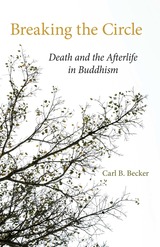
In this much-needed examination of Buddhist views of death and the afterlife, Carl B. Becker bridges the gap between books on death in the West and books on Buddhism in the East.
Other Western writers have addressed the mysteries surrounding death and the afterlife, but few have approached the topic from a Buddhist perspective. Here, Becker resolves questions that have troubled scholars since the beginning of Buddhism: How can Buddhism reconcile its belief in karma and rebirth with its denial of a permanent soul? What is reborn? And when, exactly, is the moment of death?
By systematically tracing Buddhism’s migration from India through China, Japan, and Tibet, Becker demonstrates how culture and environment affect Buddhist religious tradition.
In addition to discussing historical Buddhism, Becker shows how Buddhism resolves controversial current issues as well. In the face of modern medicine’s trend toward depersonalization, traditional Buddhist practices imbue the dying process with respect and dignity. At the same time, Buddhist tradition offers documented precedents for decision making in cases of suicide and euthanasia.

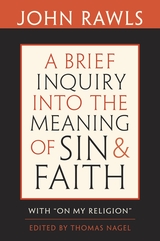
John Rawls never published anything about his own religious beliefs, but after his death two texts were discovered which shed extraordinary light on the subject. A Brief Inquiry into the Meaning of Sin and Faith is Rawls’s undergraduate senior thesis, submitted in December 1942, just before he entered the army. At that time Rawls was deeply religious; the thesis is a significant work of theological ethics, of interest both in itself and because of its relation to his mature writings. “On My Religion,” a short statement drafted in 1997, describes the history of his religious beliefs and attitudes toward religion, including his abandonment of orthodoxy during World War II.
The present volume includes these two texts, together with an Introduction by Joshua Cohen and Thomas Nagel, which discusses their relation to Rawls’s published work, and an essay by Robert Merrihew Adams, which places the thesis in its theological context.
The texts display the profound engagement with religion that forms the background of Rawls’s later views on the importance of separating religion and politics. Moreover, the moral and social convictions that the thesis expresses in religious form are related in illuminating ways to the central ideas of Rawls’s later writings. His notions of sin, faith, and community are simultaneously moral and theological, and prefigure the moral outlook found in Theory of Justice.





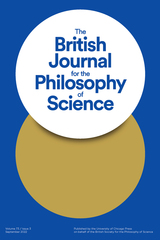
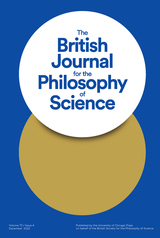
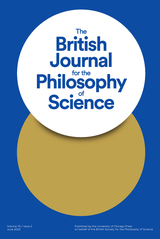
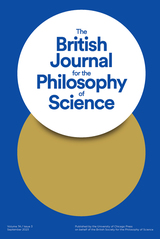

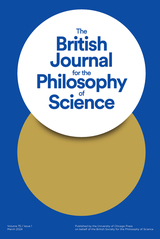

Bruno Latour, the French sociologist, anthropologist and long-established superstar in the social sciences is revisited in this pioneering account of his ever-evolving political philosophy. Breaking from the traditional focus on his metaphysics, most recently seen in Harman’s book Prince of Networks, the author instead begins with the Hobbesian and even Machiavellian underpinnings of Latour’s early period encountering his shift towards Carl Schmitt then finishing with his final development into the Lippmann / Dewey debate. Harman brings these twists and turns into sharp focus in terms of Latour’s personal political thinking.
Along with Latour’s most important articles on political themes, the book chooses three works as exemplary of the distinct periods in Latour’s thinking: The Pasteurization of France, Politics of Nature, and the recently published An Inquiry Into Modes of Existence, as his conception of politics evolves from a global power struggle between individuals, to the fabrication of fragile parliamentary networks, to just one mode of existence among many others.
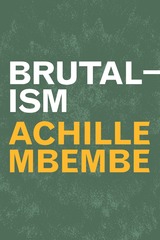
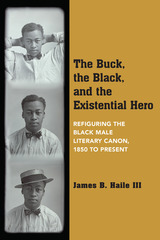
The Buck, the Black, and the Existential Hero: Refiguring the Black Male Literary Canon, 1850 to Present combines philosophy, literary theory, and jazz studies with Africana studies to develop a theory of the black male literary imagination. In doing so, it seeks to answer fundamental aesthetic and existential questions: How does the experience of being black and male in the modern West affect the telling of a narrative, the shape or structure of a novel, the development of characters and plot lines, and the nature of criticism itself?
James B. Haile argues that, since black male identity is largely fluid and open to interpretation, reinterpretation, and misinterpretation, the literature of black men has developed flexibility and improvisation, termed the “jazz of life.” Our reading of this literature requires the same kind of flexibility and improvisation to understand what is being said and why, as well as what is not being said and why. Finally, the book attempts to offer this new reading experience by placing texts by well-known authors, such as Frederick Douglass, Ralph Ellison, and Colson Whitehead, in conversation with texts by those who are less well known and those who have, for the most part, been forgotten, in particular, Cecil Brown. Doing so challenges the reader to visit and revisit these novels with a new perspective about the social, political, historical, and psychic realities of black men.



In the late 1800s, as Japanese leaders mulled over the usefulness of religion in modernizing their country, they chose to invite Unitarian missionaries to Japan. This book spotlights one facet of debates sparked by the subsequent encounter between Unitarianism and Buddhism—an intersection that has been largely neglected in the scholarly literature. Focusing on the cascade of events triggered by the missionary presence of the American Unitarian Association on Japanese soil between 1887 and 1922, Michel Mohr’s study sheds new light on this formative time in Japanese religious and intellectual history.
Drawing on the wealth of information contained in correspondence sent and received by Unitarian missionaries in Japan, as well as periodicals, archival materials, and Japanese sources, Mohr shows how this missionary presence elicited unprecedented debates on “universality” and how the ambiguous idea of “universal truth” was utilized by missionaries to promote their own cultural and ethnocentric agendas. At the turn of the twentieth century this notion was appropriated and reformulated by Japanese intellectuals and religious leaders, often to suit new political and nationalistic ambitions.

READERS
Browse our collection.
PUBLISHERS
See BiblioVault's publisher services.
STUDENT SERVICES
Files for college accessibility offices.
UChicago Accessibility Resources
home | accessibility | search | about | contact us
BiblioVault ® 2001 - 2024
The University of Chicago Press









